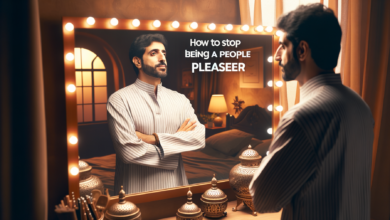Addressing and Overcoming a Victim Mentality

Are You Trapped in a Victim Mentality?
Have you ever found yourself constantly blaming external circumstances for your unhappiness or misfortune? That lingering sense of powerlessness, where external factors are always the “villains” in your narrative, could be a sign of a victim mentality. This mindset can be a tremendous hurdle to personal growth and happiness. But why do some of us fall into this trap, and what can we do to pull ourselves out of it?
Understanding the Victim Mentality
A victim mentality is a psychological state where a person feels perennially at the mercy of life’s events, without control over their own fate. They tend to believe that their struggles are caused by others or external events, absolving themselves of responsibility. This mindset can lead to a cycle of negative thinking, inability to handle life’s challenges effectively, and ultimately, a stagnant life experience where growth is stifled.
Psychologists have pointed out that continuously feeling like a victim might stem from past traumas, an upbringing that enabled dependency, or learned helplessness from repeated failures. Whatever the origin, the consequences often involve an individual who feels powerless, blames others, and has a pessimistic outlook on life.
Identifying Signs of a Victim Mentality
To overcome a victim mentality, recognition is the first step. Here are some telltale signs:
- Blaming Others: Consistently blaming others or circumstances for personal failures or misfortunes.
- Pessimism: Possessing a generally negative outlook on life, expecting the worst out of situations, and feeling hopeless.
- Lack of Responsibility: Avoiding personal accountability and preferring to see oneself as an innocent bystander.
- Manipulative Behavior: Using one’s perceived suffering to manipulate situations or gain attention/sympathy.
- Chronic Complaining: Complaining frequently about life’s unfairness without taking steps to change the situation.
Acknowledging these traits within oneself isn’t an easy task, but it is essential.
Strategies to Overcome the Victim Mentality
1. Cultivate Self-Awareness
Take a step back and observe your thoughts and reactions. Mindfulness techniques can help you stay grounded in the present moment and give you the clarity to notice when you’re slipping into a victimhood narrative. As you become more self-aware, you can challenge these thought patterns by asking, “Is there another way to view this situation?”
2. Accept Responsibility
This isn’t about taking the blame for everything; it’s about recognizing your autonomy. Accepting responsibility means understanding that while you cannot control external events, you can control your reactions to them. Embrace the idea that you have the power to affect positive change in your life.
3. Shift Your Focus to Empowerment
One key strategy for moving away from victimhood is to focus on what you can control – your thoughts and actions. Instead of dwelling on what’s happened to you, direct your energy towards what you can do to improve your situation. This shift in focus can cultivate a more empowered and proactive mindset.
4. Set Boundaries
Victims often have a hard time saying no or standing up for themselves. By establishing clear boundaries, you start valuing your time, energy, and emotional well-being. This self-respect can drastically shift how you interact with the world and how the world interacts with you.
5. Practice Gratitude
Gratitude can transform your mindset. By focusing on the positive aspects of your life, you’ll realize that despite any challenges, there’s still so much to be thankful for. Keeping a gratitude journal can help foster this positive outlook and counteract feelings of helplessness and despair.
6. Seek Support and Build Healthy Relationships
Surrounding yourself with supportive individuals who uplift you can be a game-changer. This environment can encourage you to step out of the victim role. Support groups, therapy, and healthy friendships are crucial in providing the encouragement and perspectives needed for personal growth.
Learning from Public Figures
Public figures like Oprah Winfrey have publicly discussed overcoming a victim mentality. Despite experiencing a difficult childhood and multiple setbacks, Oprah constantly emphasizes empowerment and personal responsibility. Her journey is a testament to the idea that one’s origins do not dictate their future, and personal mindset is key.
Practical Exercises to Practice Daily
Here are some actionable steps to counter victim mentality every day:
- Start with Positive Affirmations: Begin each day with affirmations that reinforce your ability to handle life’s challenges.
- Reframe Negative Thoughts: When you catch yourself having a negative thought, try to reframe it in a positive or neutral way.
- Take Action: Set small, achievable goals and take action daily to build a sense of competence and independence.
- Reflect: End each day by reflecting on your actions, celebrating your successes, and assessing how you can improve tomorrow.
Finishing Thoughts
Escaping a victim mentality isn’t about denying the reality of pain or difficulty; it’s about reclaiming your power from those experiences. By fostering self-awareness, taking responsibility, practicing empowerment, setting boundaries, expressing gratitude, and building supportive relationships, you can shift from a victim narrative to one of victory and personal triumph.
The road may be challenging, but the journey is incredibly rewarding. Remember, true strength arises not from never falling, but from rising every time we fall. Engage with life proactively, embrace the lessons, and watch as you transform your trials into triumphs.




